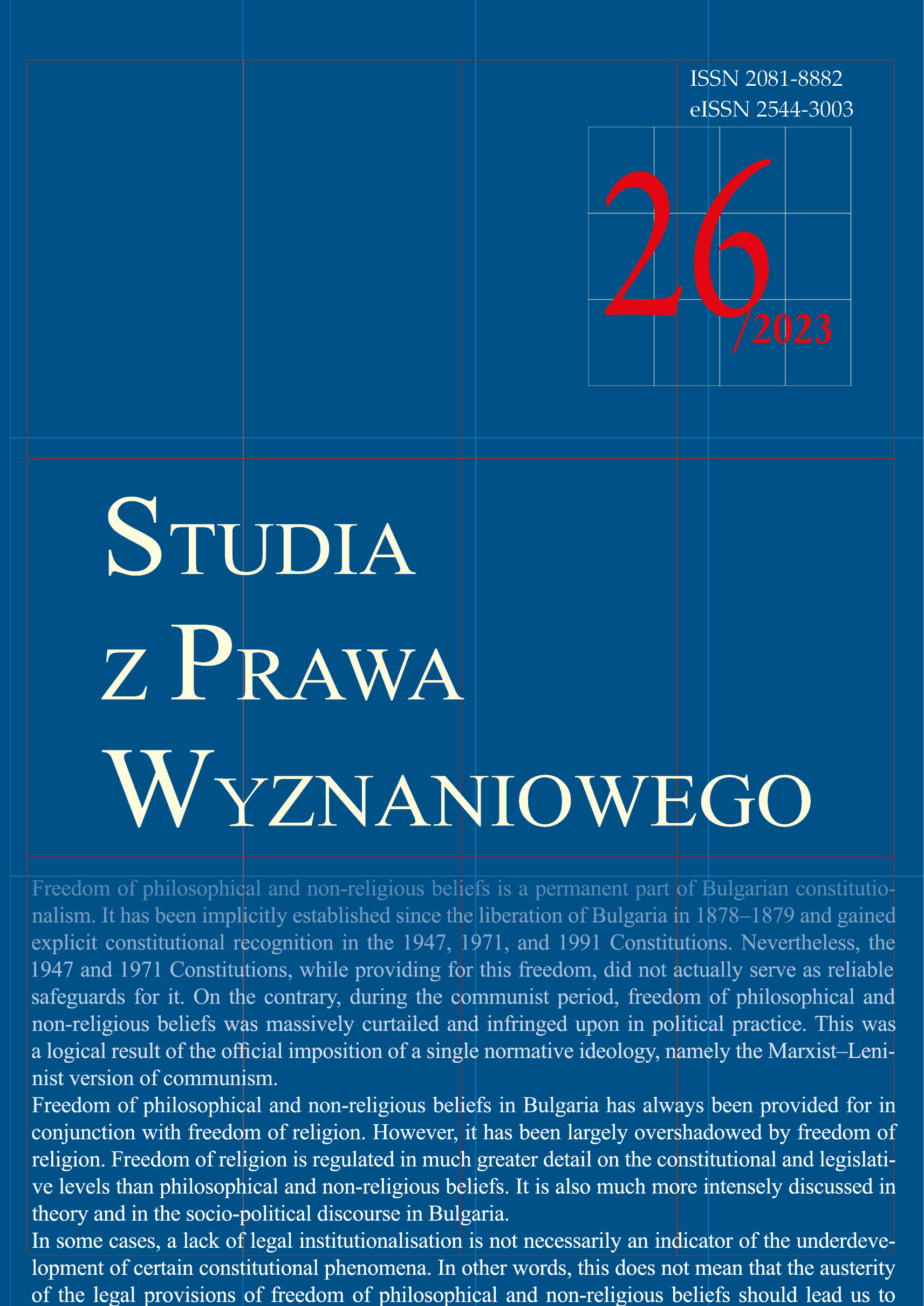Dyskryminacja nauczycieli religii. Glosa do wyroku Trybunału Sprawiedliwości Unii Europejskiej z dnia 13 stycznia 2022 roku (C-282/19)
Discrimination against religion teachers. A commentary on the judgment of the Court of Justice of the European Union of 13 January 2022 (C-282/19)
Author(s): Agnieszka ParolSubject(s): Constitutional Law, Human Rights and Humanitarian Law, Public Law, Canon Law / Church Law, Sociology of Religion, Court case, Administrative Law
Published by: Katolicki Uniwersytet Lubelski Jana Pawła II
Keywords: discrimination;discrimination on the grounds of religion;fixed-term employment contract;public sector;article 17 TFEU;Catholic religion teachers;dyskryminacja ze względu na religię;nauczyciele religii
Summary/Abstract: This commentary analyzes the preliminary ruling of the Court of Justice of the European Union in the case C-282/19, YT and Others v. MIUR and Ufficio Scolastico Regionale per la Campania, issued 13 January 2022. The referring court made a request for a preliminary ruling, questioning the compliance of Italian law with EU law. The infringement of EU law was allegedly due to the abuse of successive fixed-term employment contracts and lack of effective measures to prevent discrimination of Italian Catholic religion teachers on the grounds of religion. When interpreting the law, the Court of Justice confirmed that the national norms excluding Catholic religion teachers in public education establishments from the scope of the provisions intended to penalise abuse of successive fixed-term contracts – where there is no other effective measure in the domestic legal system – constitute a breach of EU law. The Court also stated that the obligation to hold missio canonica cannot constitute an objective reason precluding the prohibition of employment discrimination. The commented judgment is one of many cases concerning the abuse of workers’ rights in the Italian public sector, in which the Court basically continues the previous line of jurisprudence. A novelty in the commented case is the interpretation of the prohibition of discrimination based on religion in employment and occupation. Contrary to the interpretation made by the national court, the Court of Justice did not confirm direct discrimination based on religion, which is prohibited under Directive 2000/78 and Article 21 of the Charter of Fundamental Rights. The extremely balanced and restrained position of the Court seems to result from the desire to maintain the broadest possible neutrality in the area closely related to the status of churches and other religious communities, which remains within the exclusive competence of member states, as established by Article 17 of the Treaty on the Functioning of European Union.
Journal: Studia z Prawa Wyznaniowego
- Issue Year: 2023
- Issue No: 26
- Page Range: 411-425
- Page Count: 15
- Language: Polish

